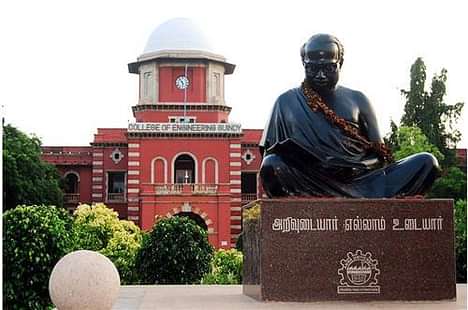
Anna University is off to a good start. Just after being declared as a University of Potential Excellence by the University Grants Commission (UGC). Anna University gets a massive amount to set up India’s first ‘Bactiobiogram’ to be specific Rs.75 crores.
The money will help buy the high-end equipment that would identify the germs causing typhoid, diarrhoea, urinary tract infection and recommend which antibiotic could be used. The drug would cost only Rs.10, and would be done in a few hours and at this price it would be accessible to everyone.This automated process will help stop scam of antibiotics, bio-medical waste and risks faced in handling the chemicals manually.At the event of Anna University on Monday, the UGC vice-chairman H Devaraj said, “With the allocated funds, the university would collaborate with industries to design a research product (bactiobiogram) which would benefit the masses.”
The microwave oven-sized device has three slots and an electronic display in front. According to Prof K Sankaran, who heads the design team, the lab assistants or paramedical staff need to place the sample of the biological fluid (blood, urine, saliva, eye and ear discharge) in the allotted slot. A robotic needle arm sucks it up, mixes it with a nutrient medium where the bacteria would grow and inject it into the third slot where a disposable microplate is placed. This plate has 96 wells filled with various antibiotics combinations.
Prof S Muttan said, “After 6-8 hours, bacterial growth can be observed in the wells which contain antibiotics which might not work on that particular patient. Through optical signals, the antibiotics which might work can be differentiated.”
This optical signal will be captured by a camera at the top of the equipment. The output, he added, can be fed into mobile phones, laptops or tablets. Following this, the needle also collects the bacterial samples and injects it into a tray placed below the microplate. The professors say this contains specific reagents which help identify the nature of the disease-causing agent which will be displayed on the front screen.
“While the conventional method involving expensive equipment takes three to four days for the test reports costing about Rs 600 to Rs 1,000, this process would bring down the cost to Rs 10 and save time,” Prof Sankaran said.
Devaraj said, “This equipment will be declared as the model for other Indian universities.” “On completion, Prime Minister Narendra Modi would inaugurate it as a part of the Make In India campaign,” he added.
Anna University is now the third university in the State to get UPE status after University of Madras and Madurai Kamaraj University. This decision was based on the final presentations made by the 7 shortlisted universities across the country last week. Anna University would now join 15 other varsities in the state to get this status. The fund of Rs.75 crore will be available to use in the month of April’16.


 Follow us
Follow us













